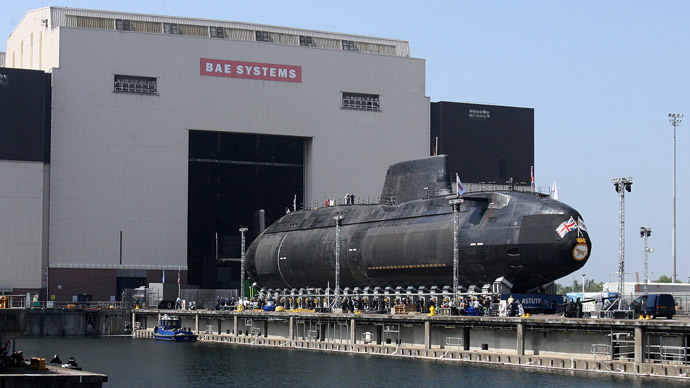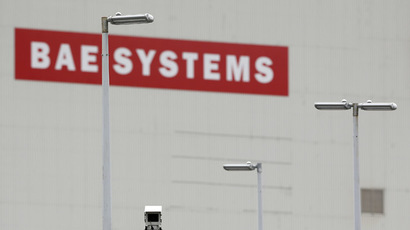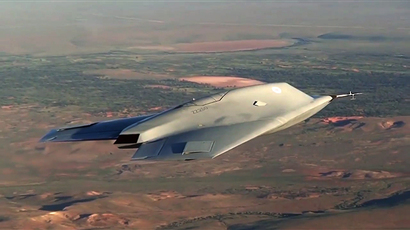BAE wins £348 mn contract to build UK patrol ships

BAE Systems, Europe's largest arms firm, has been awarded a £348 million contract by the UK government to build three new offshore patrol vessels (OPVs) for counter-terrorism, counter-piracy and anti-smuggling operations.
The vessels will be built at BAE Systems' shipyards on the Clyde in Glasgow, where shipbuilders are currently working on the second of two British aircraft carriers.
“UK warships are only built in UK shipyards,” said Defence Secretary Michael Fallon. “This multi-million pound contract shows our commitment to investing in new ships for the Royal Navy and maintaining in the UK the expertise needed to build the warships of the future.”
Securing more than 800 jobs in Scotland, the announcement comes ahead of the September 18 independence referendum. Pro-UK “Better Together” campaigners resisting independence cite the number of Scottish jobs created by the British defence industry as an argument against splitting from London.
“Today’s announcement continues over 200 years of tradition building the nation’s leading ships on the Clyde,” said Chief Secretary to the Treasury Danny Alexander. “This will also support hundreds of jobs in the region and make an important contribution to the wider UK economy.”
We've been awarded a £348m contract to construct three Offshore Patrol Vessels for the @RoyalNavy. More details today pic.twitter.com/dYPwxGXmyq
— BAE Systems Maritime (@BAES_Maritime) August 12, 2014
Four years of government cuts to defence spending to reduce the country's budget deficit have cast doubt over the future of the industry. The £6.2 billion aircraft carrier, HMS Queen Elizabeth, is meant to be the first of two aircraft carriers. The fate of the second ship, the Prince of Wales, which is being assembled at Rosyth dockyard near Edinburgh, is unclear.
While it is already under construction by BAE Systems and partner companies, the government hasn’t yet decided whether it will be used, dry docked or sold on. Meanwhile, the new OPVs are being built under a deal struck in 2009 which stated that the MoD would have been liable to pay for any periods when there was no work taking place at UK shipyards.
Our new Offshore Patrol Vessel design will provide the @RoyalNavy with a step change in capability http://t.co/SrFwt1EyQq
— BAE Systems Maritime (@BAES_Maritime) August 12, 2014
“The cost of building the ships is funded from money that would have been used to pay for idle capacity, finance redundancies and meet the cost of industrial restructuring,” the MoD said last November when the plan for the three new vessels was first announced.
Featuring a redesigned flight deck to operate the latest Merlin helicopters, as well as increased storage and accommodation facilities, the OPVs would build on the capability of the Royal Navy’s current River Class vessels.
Looking forward to visiting BAE systems Govan shipyard today to announce the order for 3 new offshore patrol vessels, securing 800 jobs
— Danny Alexander (@dannyalexander) August 12, 2014
“We’re making major investments in our people, technology and facilities to create a world-class complex warship capability and the OPVs provide an opportunity to embed these new ways of working,” said Mick Ord, Managing Director at BAE Systems Naval Ships.
“This will ensure we remain competitive and are best placed to secure the Type 26 manufacturing contract, which together with the investments will sustain the long-term future of this highly skilled industry.”
The first OPV is expected to be handed over to the Royal Navy in 2017.














